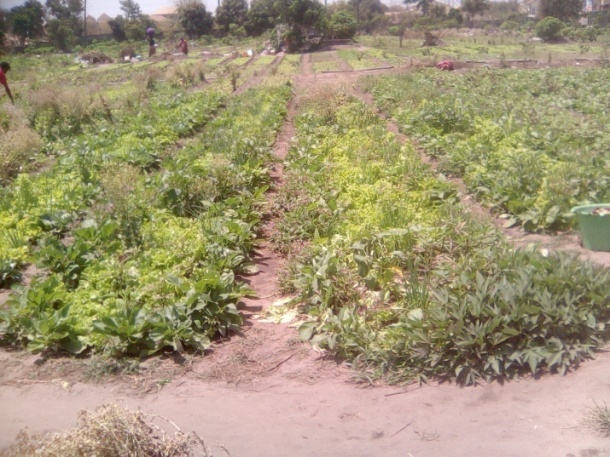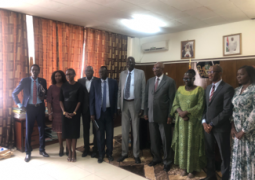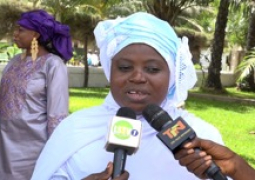
On 17th March 2020, the Gambia registered its first Covid-19 case. Following this tragedy, President Barrow-led government declared the closure of schools, restaurants, hotels, and public gatherings. The government also reduced operational hours of markets and imposed other restrictive measures aimed at controlling the Covid-19 pandemic.
The government’s series of state of public of emergency in 2020 affected various walks of life including women gardeners who depend on their vegetable productions for survival.
The 301st national situational report since the confirmation of the first case of the coronavirus disease (COVID-19) in The Gambia on the17th March 2020 indicated that the country has registered 174 deaths; 5, 882 confirmed cases and 399 active cases and a crude fatal case ratio of 3%. And it showed only one Covid-19 patient is currently on oxygen therapy.
This report has also revealed that 21,259 people have been vaccinated against COVID-19 as of 25th April 2021. 1,786 rapid diagnostic tests were conducted at the Airport for travelers, of which only 2 were positive as of 25th April 2021.
Speaking to The Point on Saturday, Soseh Bojang, prominent woman gardener at Sukuta Women Garden in the Kombo North District, said the coronavirus pandemic has severely affected all women gardeners. She said they often produce more vegetables but purchase is very poor that they have little financial gains.
“Since this disease came, it is very difficult for us to market our products compared to previous years. Now, many often tell us they lack the money to purchase more vegetables and legumes,” she lamented.
She added: “The coronavirus has disturbed us a lot because we find it difficult to make money now.”
She said the women gardeners are working daily to sell their products to sustain themselves and their families, but added that their products are not selling; therefore, they cannot address their needs.
“We should save money for future expenditures but if the market is poor how can we do so to address our future challenges,” she asked?
Subsequently, the women gardeners said the deadly disease has drastically violated their economic rights, justifying that they often have sufficient vegetables but selling them becomes a major challenge.
Fatoumatta Kanteh, leader of Jambur Women Garden in the Kombo South District, said the COVID-19 pandemic has seriously affected the financial gains of the Jambur Women Gardeners. She said now they find it difficult to provide the basic needs of their families due to the poor market.
“This calamity has reflected to our families as we no longer address all the needs of our people,” she said.
“We are coming here daily to get something that would benefit our families but we are no longer getting that due to the poor market. Meaning, we are working in vain,” she said.
Jainaba Saidy, vegetable vendor at the Serekunda Market, confirmed that the Covid-19 pandemic has drastically affected women gardeners’ financial gains. She said sometimes vendors would take goods from gardeners but the goods would end up spoiling as a result of poor sales.
This, she said at some point, made vendors delay their payment to gardeners or fail to pay at all.
“In fact, I personally lost lots of money in my business. Because sometimes I would purchase vegetables from gardeners and I would not sell them due to the poor market. Many are telling me they lack adequate money to buy more vegetables,” she said.
Tom Senghor, head of Horticulture at National Agricultural Research Institute (NARI), told this medium that women gardeners within the West Coast Region (WCR) encountered severe economic crisis during the tense Covid-19 period, saying this happened due to the closure of restaurants and hotels that are major business partners to gardeners.
The horticulturist also said that the government should support the gardeners with seeds and tools to ensure they embark on larger vegetable production following their huge losses. He further stated that they also need a financial scheme as they experienced almost a year-long lockdown.
Tabu Sarr -Njie, a women right activist, expressed sorrow for women gardeners’ current situation, saying last year's Covid-19 restrictive measures and several states of public emergencies had caused gardeners’ economic meltdown.
It could be recalled that in 2020, The Gambia Government provided a Covid-19 relief package to the media and people working in tourism industry. It also provided Covid-19 allowance to frontline health workers. None of the informal workers including women gardeners benefited from such package.
However, the women rights activist opined that there is a need for government to support these women financially in order to help in restoring their financial loss during the tense time of the pandemic.
Moreover, Basiru L. Bah, a law lecturer at the University of The Gambia (UTG), made a legal analysis of the gardeners’ situation, saying Section 51 of the Women Acts 2010 has given women rights to sustainable development including livelihood, while Section 48 of the Women Act states that women are entitled to food security. He said women used gardening to attain their food security.
Therefore, he said Section 48 has mandated women to get facilities from the government that would help them to make money to live a decent life.
For his part, Modou Njai, director of Health Promotion and Education at the Ministry of Health, said many Gambians have misconceptions surrounding the coronavirus pandemic, noting some disbelieved its existence at all.
He said the wrong idea concerning Covid-19 has affected his ministry’s efforts to combat the deadly disease in the country, justifying that some people believe the Covid-19 AstraZeneca vaccine is linked with blood clot, thus hesitant in taking it.




